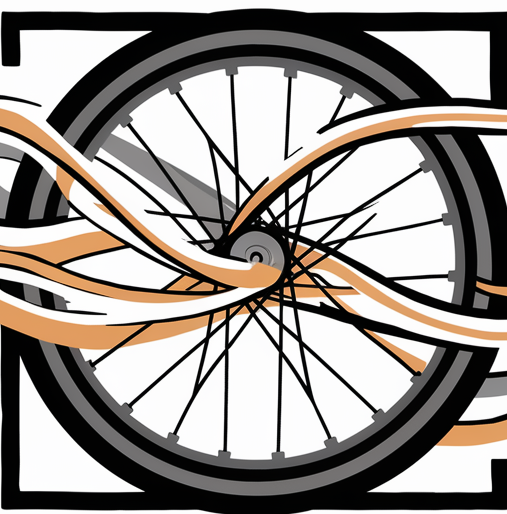Riding a bicycle while intoxicated raises an intriguing question: can you get a DWI on a bicycle? The answer is yes, in many places, and the consequences can be just as serious as those for driving a car under the influence. Biking might seem like a harmless alternative, but law enforcement takes impaired biking seriously.
Imagine cruising down the road, thinking you’re safe on a bike. You might be surprised to learn that authorities can and do issue DWIs for cyclists. Staying informed about the laws in your area can help you avoid unexpected legal troubles.
Can You Get a DWI on a Bicycle?
When we think about driving while intoxicated (DWI), we often picture cars, trucks, and other motor vehicles. But what about bicycles? Can you really get a DWI for riding a bike while under the influence? This question has sparked discussions among cyclists, law enforcement, and even legal experts. In this post, we will dive into the details surrounding the issue of getting a DWI on a bicycle, exploring the laws, potential consequences, and various factors that come into play.
Understanding DWI and Bicycles
First, it’s essential to understand what a DWI is. A DWI is a criminal charge that typically means a person is caught operating a vehicle while impaired by alcohol or drugs. While the definition usually refers to motor vehicles, laws vary by state when it comes to bicycles.
- Motor Vehicles vs. Bicycles: Most people think of DWI laws as applying to motorized vehicles. However, many jurisdictions define “vehicles” in a way that includes bicycles.
- State Variations: The rules can differ significantly from one state to another. Some states have specific laws addressing biking under the influence, while others simply apply the general DWI laws to all vehicles, bicycle included.
- Definition of ‘Operating’: In legal terms, “operating” a vehicle may also apply to riding a bicycle. This can lead to impairment charges for cyclists.
State Laws Regarding DWI on Bicycles
Since laws can vary by state, it’s important to look at some specific regulations. Below, we outline a few examples from different states to illustrate how these laws work.
California
In California, riding a bicycle under the influence of alcohol or drugs can result in a DUI charge, which is similar to DWI. This law applies whether the cyclist is riding on roadways or trails.
Florida
Florida has a specific statute regarding cyclists. Under Florida law, a bicycle is considered a vehicle. Therefore, if someone rides a bike while impaired, they can face penalties similar to those for operating a motor vehicle while intoxicated.
New York
In New York, cyclists can be stopped and charged with a DWI or DUI, depending on their blood alcohol content (BAC). New York law treats bicycles as vehicles, allowing law enforcement to enforce similar penalties.
Texas
Texas does not have a specific law regarding cycling under the influence. However, like many other states, it includes bicycles in its definition of vehicles when it comes to DWI laws. Cyclists can be charged with a DWI if they are found to be impaired.
Consequences of a DWI on a Bicycle
If you find yourself charged with a DWI while riding a bicycle, it’s crucial to understand the potential consequences. These can include:
- Legal Penalties: Just like DWI or DUI on a motor vehicle, the legal consequences can include fines, community service, and possible jail time.
- License Suspension: In some cases, even though bicycles don’t require a driver’s license, a DWI can still lead to a suspension of your driving privileges for a motor vehicle.
- Criminal Record: Being charged with a DWI can result in a permanent criminal record, which may affect future employment opportunities or travel.
- Increased Insurance Rates: Having a DWI on your record can lead to significantly higher insurance premiums for any vehicles you might drive.
How Do Police Enforce DWI Laws on Bicycles?
Law enforcement has the right to stop cyclists if they suspect impairment. Here’s how the process typically works:
Field Sobriety Tests
Just like with motor vehicles, if a police officer suspects that a cyclist is riding under the influence, they may conduct a field sobriety test. This may include:
- Walking in a straight line
- Balancing on one foot
- Following a moving object with their eyes
Breathalyzer Tests
Officers can also request a breathalyzer test to measure a cyclist’s blood alcohol content. If the cyclist refuses, there may be legal ramifications, including fines or assumption of guilt.
Preventing a DWI Charge on a Bicycle
There are several effective strategies cyclists can use to avoid the risk of a DWI charge. Here are some tips:
- Plan Ahead: If you plan to drink, arrange for alternate transportation. This can mean having a designated rider or using public transportation.
- Stay Informed: Know the laws in your state regarding biking under the influence to avoid potential legal trouble.
- Use a Personal Breathalyzer: Some cyclists invest in personal breathalyzers to gauge their sobriety before riding home.
- Ride Responsibly: Always act as though you are behind the wheel of a car. This means obeying traffic laws and avoiding dangerous situations.
Challenges Facing Cyclists
Cyclists face many unique challenges that may heighten the risk of a DWI charge.
Road Conditions
Bicycles have less protection than cars, which means cyclists are more vulnerable. This risk can lead to poor decision-making, especially after consuming alcohol.
Social Perceptions
Some people may view cycling as a safer mode of transport when drinking, leading them to underestimate the risks involved. This perception can lead to more cyclists riding under the influence.
Legal Defense Against a DWI on a Bicycle
If someone is charged with a DWI while riding a bicycle, they have options for their defense. Here are a few strategies that might be used:
- Challenging the Stop: If law enforcement did not have a valid reason to stop the cyclist, the charge may be dismissed.
- Questioning the Test Results: Breathalyzer tests can sometimes produce inaccurate results. A defense attorney may argue that the results were not valid.
- Proving Impairment: The attorney might present evidence showing that the cyclist was not impaired, despite the results of the test.
Statistics and Trends
Understanding the statistics around bicycle-related DWIs can help shed light on the issue. A few key points to consider include:
- Bicyclists accounted for about 2% of all traffic fatalities in recent years, with many involving alcohol.
- Studies show that men between the ages of 20 and 29 are the most likely to be involved in alcohol-related bike accidents.
- Many states report an increase in DWI charges against cyclists, suggesting a rising awareness of the issue.
Understanding these trends helps clarify why it’s so important for cyclists to approach riding under the influence with caution.
Real-Life Stories
Personal stories can give insight into the consequences of cycling while impaired. Below are a few scenarios that highlight various outcomes:
Case 1: A Community Service Sentence
John, a 23-year-old cyclist, decided to ride home after a few beers with friends. He was stopped by the police and charged with a DWI. Instead of jail time, John received community service, but he still had to deal with the stigma of a criminal record.
Case 2: Serious Injury Accident
Samantha, a 29-year-old cyclist, thought she could ride home safely after drinking. Unfortunately, she lost control and crashed, resulting in a serious injury. This experience not only impacted her physically but also led to a DWI charge.
Case 3: Legal Defense Success
Tom was biking home when he got pulled over. He was charged with a DWI based on a breathalyzer test. However, his attorney proved that the test was flawed, resulting in the dismissal of the charges.
These stories remind us of the importance of making smart choices when it comes to alcohol and biking.
The question surrounding getting a DWI on a bicycle ultimately boils down to local laws and personal responsibility. Just because it’s possible to ride a bike while impaired doesn’t mean it’s a good idea. Cyclists must be aware of the potential legal and personal consequences that may arise from such actions. Staying informed, planning ahead, and riding responsibly creates a safer environment for everyone on the road.
Can you get a DWI on an electric bike? #shorts
Frequently Asked Questions
Is it legal to ride a bicycle while under the influence of alcohol?
Yes, it is generally legal to ride a bicycle while under the influence of alcohol, but it can lead to serious legal consequences, including receiving a DWI or DUI charge in some jurisdictions. Different states have varying laws regarding cycling under the influence, so it’s essential to be aware of local regulations. Some places consider cyclists as vehicle operators, making them subject to similar legal standards as drivers of motor vehicles.
What penalties can I face for biking under the influence?
If you receive a DWI while riding a bicycle, you may face penalties similar to those for driving a motor vehicle under the influence. These penalties can include fines, mandatory alcohol education programs, community service, and even loss of your cycling privileges. In some cases, repeat offenses may lead to more severe consequences.
Can a police officer stop me for riding a bicycle erratically?
Yes, a police officer can stop you if you’re riding a bicycle erratically. If your behavior suggests you might be impaired, the officer may investigate further. Depending on the situation, they can issue a citation for your cycling behavior just like they would for a motor vehicle operator.
Do I have to submit to a breathalyzer test while biking?
In most states, if a police officer suspects you of cycling under the influence, you may be required to submit to a breathalyzer test. Refusing to take the test can lead to penalties that vary by state. Always check your local laws to understand your rights and obligations in such situations.
Are there alternatives to prevent a DWI while biking?
To avoid a DWI while biking, consider using alternative transportation methods. You can designate a sober friend to drive, utilize public transportation, or arrange for a rideshare service. Planning ahead can help you enjoy your time without risking legal complications.
Final Thoughts
You can indeed get a DWI on a bicycle, as many jurisdictions treat cyclists similarly to drivers when it comes to intoxication laws. Riding a bike under the influence poses safety risks not only to the cyclist but also to others on the road.
Law enforcement often emphasizes that bicyclists should be aware of their limits just like drivers. When enjoying a ride, always prioritize safety and consider alternative transportation if you’ve been drinking.



